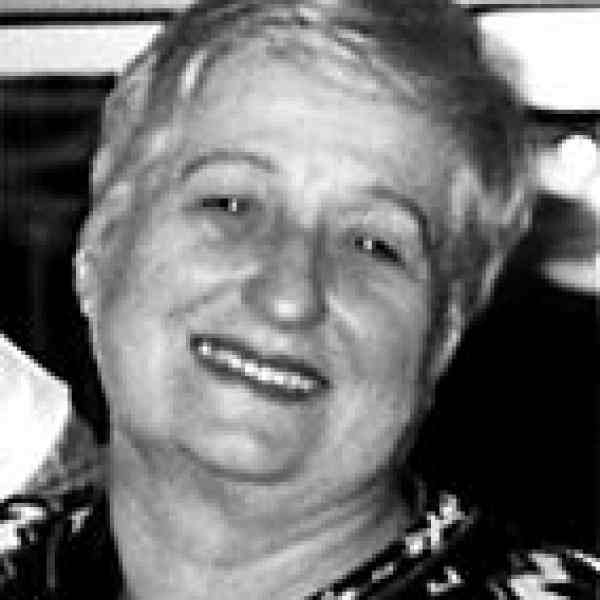Introduction
Nijole Arbaciauskiene is pioneering a volunteer program that enables retired persons in Lithuania to define productive roles for themselves by participating in community programs and social development.
The New Idea
In Lithuania and other central European countries, when people retire from their jobs they lose their defining social role and rarely have a structured way to participate in the community. Nijole is the first Lithuanian to offer this neglected population opportunities to help others in need by participating in volunteer programs. She established the Elderly Women's Activities Center in 1994, to help retired and elderly people transform their place in society from burden to productive member. EWAC's members–more than 200 in Kaunas and others throughout the country–gain access to resources and training that enable them to develop expertise, improve their own lives, and regain a sense of utility and purpose. Additionally, EWAC helps participants connect with members of younger generations and encourages a cross-generational exchange of experiences.
The Problem
In Lithuania and other Central European countries, retired people are seen as a burden to society, and few programs exist that encourage their continued involvement in community. Instead, those over age sixty who want to be active are offered opportunities to join unions of retired persons, which lobby for increased pensions and organize passive leisure activities.Today, people over age sixty constitute nearly 20 percent of Lithuanians, and the proportion is growing each year. Many of them live by themselves, isolated from society, often struggling with reduced personal income because the economic upheaval of the transition from communism caused the government to keep pensions extremely low, averaging sixty to one hundred dollars per month. Historically, Lithuanians lived in multigenerational households in which each person had a clear and appropriate role and a strong sense of place and purpose. Older people without families were housed and provided for by the church. However, as the birth rate falls and life expectancy rises, older people are growing as a share of the population and there are fewer younger people to provide them with a home.The change is especially significant for women, who on average live twelve years longer than men. There are nearly twice as many women as men over age sixty, and an estimated 70 percent of them live alone and have infrequent interaction with the outside world. Physical and social isolation contribute to low self-esteem, depression, and hopelessness among many older women.
The Strategy
EWAC encourages women to be active, creative, and useful members of society by assisting others in need. Older women, all volunteers, run EWAC and offer a range of programs to retired persons, from forums and training programs to grief counseling and intergenerational exchange. EWAC's first program, still active, is a weekly public meeting called Saturday Talks, which provides a place for sharing information, experiences, and opinions. Some sixty participants attend regularly to discuss topics ranging from philosophy to fashion. The meetings double as planning sessions in which EWACs members choose topics for future programs and discuss new directions. EWAC also offers educational courses. Training for Nurse Aid Volunteers, for example, teaches human anatomy, physiology, and basic nursing practice. Participants learn patient care and hygiene, drug use and storage, and a host of medical procedures. Additionally, they gain experience in grief management that prepares them to help terminally ill patients meet death with dignity and peace and provide practical assistance to families of the dying. Five hundred retired and elderly women have participated in the training, and many now volunteer in hospital and home settings. Recently, a hospital contracted with EWAC volunteers to deliver meals to sick women living at home. In 1996, EWAC introduced a training program for victims of domestic violence and crime. The training combines psychological and physical preparation, shows participants techniques for avoiding conflict through negotiation, and defending oneself against bodily attack.EWAC has launched two cross-generational exchanges, one that encourages older volunteers and youth to learn from shared experiences, and another in which EWAC members and elementary school children take gifts to women who do not have children.Funding from foundations has enabled EWAC to renovate its center in Kaunas, the first of its kind in Lithuania. Retired and older people are always welcome at the center, which contains a gym, a spacious meeting room, and a care facility. Nijole plans to broaden the financial base by charging minimal fees for cooking courses and lectures on a variety of topics.
The Person
Nijole comes from a family in which women found expression for their dreams and creativity late in life. Her grandmother, after raising nine children, became a famous author and is pictured on Lithuanian currency. Nijole worked for forty years as an engineer in a research institute, before retiring in 1991, determined to make the next period of her life valuable for her and society. However, when she submitted a proposal to create a club in the institute where she had worked, the director accused her of trying to foment change and refused her proposal. Nijole learned English and began to correspond with retired people in countries outside Lithuania. Seeing the vast potential of establishing links with communities elsewhere, she began collaborating with groups of retired people in Great Britain and the United States, looking for ideas she could adapt to Lithuania. She currently coordinates the central and east Europe Elderly People Organization's Network, which operates internationally. At age sixty-six, Nijole declares, "I never expected to work as much and as hard as I do now."
